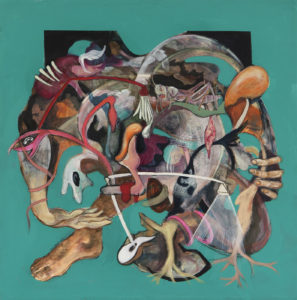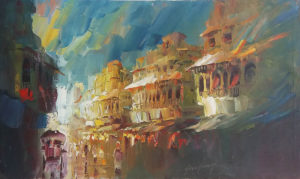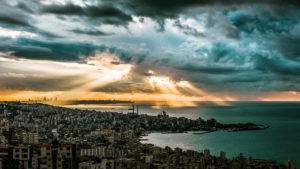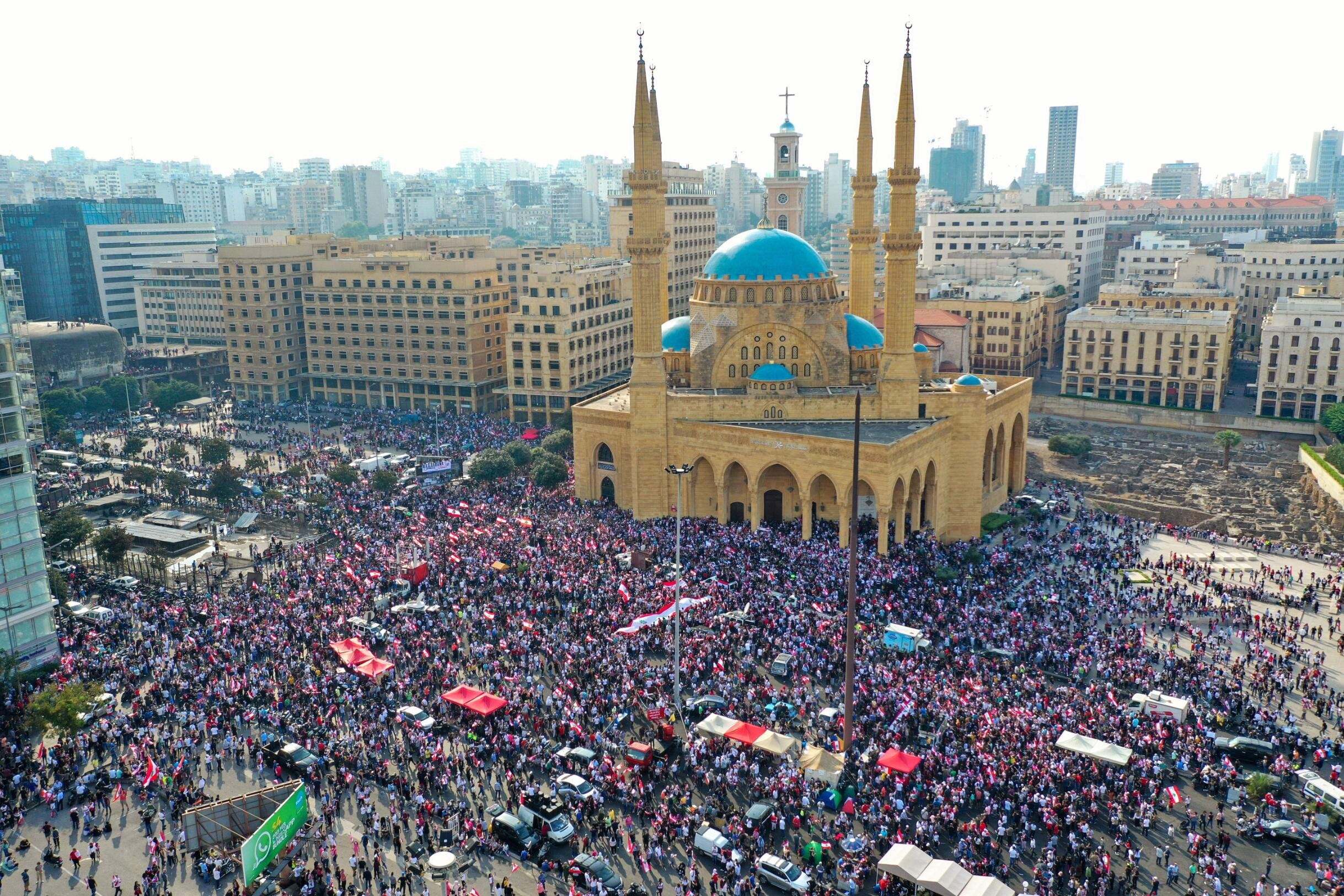
Lebanese protesters rally in central Beirut during demonstrations against tax increases and official corruption.
Samir El-Youssef
I was only sixteen when my mother and I visited a highly-connected cousin seeking his help so I could be admitted to a Lebanese state school.
As a Palestinian I already knew that only a small number of Palestinian students were ever allowed into Lebanese state schools. And when every student vied to be one of the chosen few, seeking wasta was the only way to guarantee success.
It was an improper and morally degrading thing to do, but this is how things usually went in Lebanon. Whether declaring one’s intention to apply for a learning or working opportunity, the first question one would be usually asked was not, “Do you have the required qualifications?” but rather, “Do you have a strong wasta?”
Wasta, however, no longer means what it used to mean when I first heard of it in the early 1970s. Back then, wasta was sought out the traditional way. One visited a well-known, highly connected relative or friend of the family or a neighbor; whatever one needed but couldn’t get without wasta, that’s what one asked for. All this changed after the start of the Civil War in 1975.
With the collapse of the state’s authorities and gradual disintegration of traditional sources of political and social power, a new player came into the scene of wasta-making, the militia commander.
The country was divided into several zones of military conflict, each of which was controlled by one militia or another. The commander was effectively in charge of everything that went on in his area. If one needed wasta to get a son or daughter admitted to school or university, or to obtain employment, or anything else where wasta was necessary, one was not likely to succeed unless one sought the help of the militia chief – or, failing that, someone who knew him very well.
Thus the concept of wasta has changed considerably in the way it worked before and after the war. In the old days it was a matter of exchanging favors between influential people. For example, I might approach a wasta-maker to help me get a job at a bank. The wasta-maker might talk to the bank manager himself to make sure that I would get the job on offer.
He might also talk to someone else, another wasta-maker, who enjoyed enough influence to make the bank manager employ me rather than someone else who might be better qualified. So why would the bank manager agree? Because one day he might need a favor in return from the wasta-maker.
With the new wasta-maker, however, it was no longer the principle of exchanging favors only that would make the bank manager submit to giving me the job. There was also the element of intimidation and the covert threat of using violence. Not that the militia commander would make the bank manager a Godfather-like “offer which he couldn’t refuse.” Nevertheless, an undeclared implicit warning hovered over the transaction: if you don’t do what I am asking you to do, I could very easily make life intolerable for you.
I remember now the well-recycled anecdote of Salim, a neighbor of ours, who once sought to work as a salesman for a large furniture store. His father was a good friend of a local militia commander and Salim asked for his help before going to meet the store manager. The militia commander didn’t even bother to phone the manager. He simply dispatched Salim to the store accompanied by two armed men in a military jeep. Upon arrival the armed men made sure that they were seen by the store manager while Salim made his way into his office. Nor did Salim forget to mention the name of the commander supporting him in his job-seeking mission.
He was employed on the spot.
Though officially the Lebanese Civil War ended over 30 years ago, little has changed in terms of how wasta works. In fact, the problem is even worse today. Leaders of militias are the ones who actually run the state. Using wasta is no longer a matter of providing an individual favor for this relative or that friend but rather a collective one. Sometimes it goes as far as being applied to influence state policy on a macro scale. The result is corruption that blights entire communities; old-style wasta, the leveraging of small advantages, delivered with a nudge and a wink, seems almost innocent by comparison.
Thousands of people have been employed in public and sometimes private and charity sectors for jobs which simply do not exist. Thousands of government employees receive salaries for jobs which they needn’t turn up to because there is no work to do in the first place.
Militia leaders who since 1990 became “respectable” politicians, cabinet ministers and members of parliament, are expected to provide jobs for their loyal supporters and members of their families or friends.
In Sidon, where I recently lived for four years, the state wasn’t the sole provider of electric power. Private power generators, large enough to provide for houses of a whole street, are the alternative when the state cannot deliver electricity for more than a few hours a day. Most of these generator owners are thugs, but with good connections to those who wield political power. And most of these political elite are corrupt beyond the imagination of even magical realism novelists. For instance, whenever there is a strong public demand that state services be restored so as to provide citizens with 24-hour electricity, generator owners feel their livelihood is being threatened, so immediately they turn to those in authority in order to prevent that solution from ever being achieved.
Wasta in its both old and new forms is an enduring aspect of the system of nepotism prevalent in Lebanon since the country gained its independence nearly eighty years ago. Still, the old way of using wasta was moderate, and when the supplicant was actually qualified for the job to which he was applying, it felt as it were merely a kind of recommendation.
The wasta which my mother and I had hoped for in order to be admitted to a state school, was of this kind. Sadly it was not strong enough and I was rejected.
Having to resort to wasta in order to obtain a place at school or work is humiliating enough and deprives one of any faith in the system. But being rejected on top of that makes one hate the system. I am sure that thousands of Palestinians and Lebanese who, just like me, had engaged in the system’s degrading game of wasta and failed, feel nothing but contempt and anger towards the system. Little wonder that when the state was torn to pieces as a result of civil war, very few people felt sorry.
As Lebanese public policy consultant and activist Sara El-Yafi has pointed out, the battle for Lebanon is not only political but also ethical and moral.
Of course, now that the new way of applying wasta has gone so far that it has practically lost its meaning, the contempt for the system has reached its final limit. Anybody can get wasta nowadays but with the total collapse of the economy there is hardly any use for it.



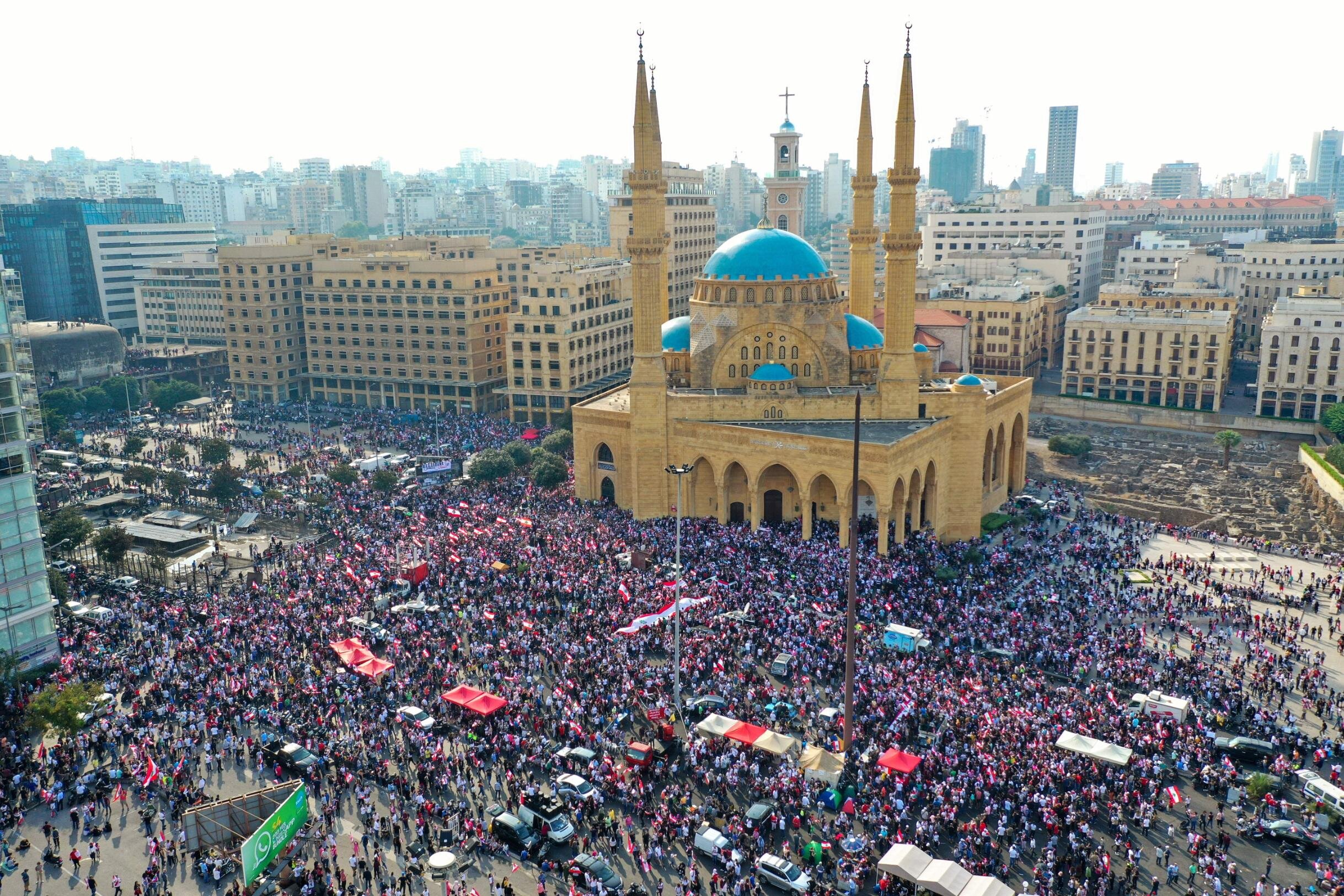
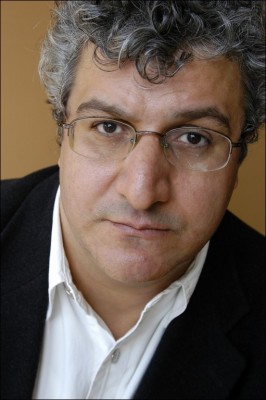







![Ali Cherri’s show at Marseille’s [mac] Is Watching You](https://themarkaz.org/wp-content/uploads/2025/09/Ali-Cherri-22Les-Veilleurs22-at-the-mac-Musee-dart-contemporain-de-Marseille-photo-Gregoire-Edouard-Ville-de-Marseille-300x200.jpg)






















































